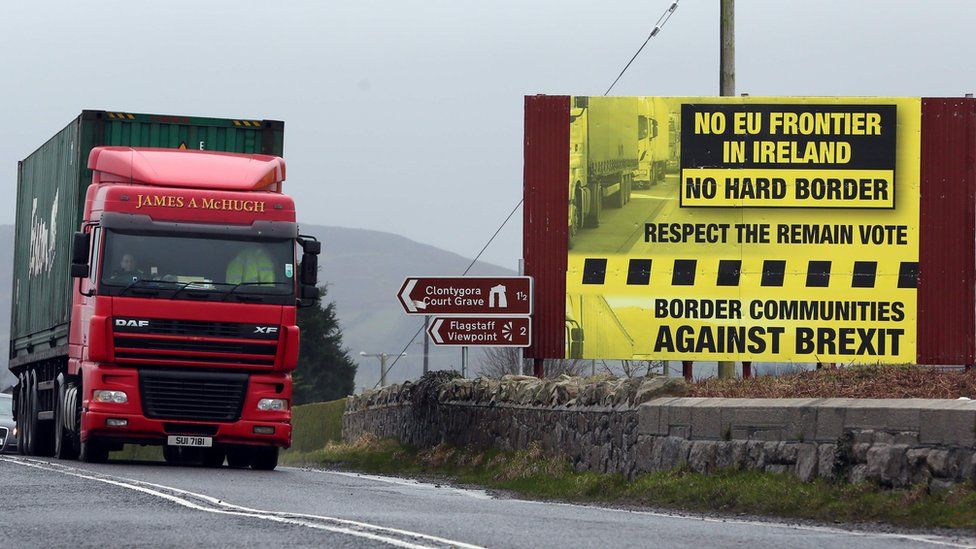Brexit: Irish economy could take a 7% hit in a no-deal scenario
- Published

An impact study produced for the Irish government suggests the country's economy would suffer a 7% hit as a result of a no-deal Brexit.
The work considers four scenarios for the UK: remaining in the single market, a customs union, a trade agreement and a worst case, WTO scenario.
The study does not suggest the Irish economy would shrink in absolute terms.
Instead, it looks at how it would perform under each scenario, up to 2030, compared to current forecasts.
An European economic area or single market scenario would be least damaging, gradually reducing GDP growth by 2.8% by 2030.
A World Trade Organisation, or no-deal scenario, would have the most impact gradually reducing GDP growth by 7% by 2030.
Five sectors account for 90% of the impact - agri-food, pharma-chemicals, electrical machinery, wholesale & retail, and air transport.
The rise of non-tariff barriers, specifically due to regulatory divergence, is the main factor driving the results.
Heather Humphreys, the Minister for Business Enterprise and Innovation, said: "Without a doubt, the study underlines the importance of a satisfactory transition period and exit deal.
"It is important to remember that the analysis is undertaken on the basis of a 'no policy response'.
"In reality, there has already been extensive planning and action across government to mitigate risks and maximise opportunities associated with Brexit," she added.
- Published9 February 2018
- Published8 February 2018
- Published30 December 2020